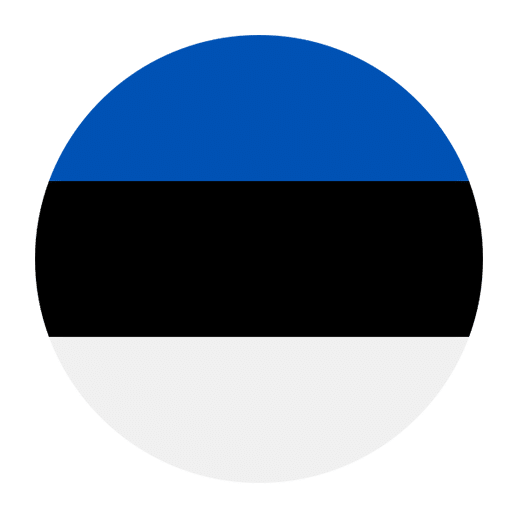Estonian, a Uralic language spoken by around 1.3 million people, is a unique and interesting language to learn. For English speakers interested in the fields of business and economics, knowing specific vocabulary in Estonian can be particularly beneficial. Estonia is renowned for its advanced digital society and thriving business environment, making it an attractive destination for international business ventures. This article will provide a comprehensive guide to essential business and economics vocabulary in Estonian, helping you navigate professional conversations and documents with greater ease.
Understanding the Basics
Before diving into the specific vocabulary, it is essential to understand some basic linguistic features of Estonian. Unlike English, Estonian is an agglutinative language, meaning that words are often formed by adding various suffixes to a root word. This characteristic can make the language seem complex, but it also provides a systematic approach to word formation.
For example:
– The word “business” in Estonian is “äri.”
– The word “economy” is “majandus.”
Common Business Terms
Let’s start with some of the most commonly used business terms. These words will be useful in a variety of professional settings:
– **Company** – ettevõte
– **Corporation** – korporatsioon
– **Business** – äri
– **Market** – turg
– **Customer** – klient
– **Client** – klient
– **Employee** – töötaja
– **Employer** – tööandja
– **Manager** – juht
– **Office** – kontor
– **Meeting** – koosolek
– **Contract** – leping
– **Agreement** – kokkulepe
– **Negotiation** – läbirääkimine
– **Investment** – investeering
– **Profit** – kasum
– **Loss** – kahjum
– **Revenue** – tulu
– **Expense** – kulu
– **Budget** – eelarve
Financial Vocabulary
Understanding financial terminology is crucial for anyone involved in business or economics. Here are some key financial terms in Estonian:
– **Money** – raha
– **Bank** – pank
– **Account** – konto
– **Savings** – säästud
– **Deposit** – hoius
– **Loan** – laen
– **Credit** – krediit
– **Debit** – deebet
– **Interest** – intress
– **Mortgage** – hüpoteek
– **Insurance** – kindlustus
– **Stock** – aktsia
– **Bond** – võlakiri
– **Share** – osak
– **Dividend** – dividend
– **Capital** – kapital
– **Asset** – vara
– **Liability** – kohustus
– **Balance Sheet** – bilanss
Economic Vocabulary
In the realm of economics, understanding specific terminology is essential for discussing theories, models, and policies. Here are some fundamental economic terms in Estonian:
– **Economy** – majandus
– **Economic Growth** – majanduskasv
– **Inflation** – inflatsioon
– **Deflation** – deflatsioon
– **Unemployment** – tööpuudus
– **Gross Domestic Product (GDP)** – sisemajanduse koguprodukt (SKP)
– **Supply and Demand** – pakkumine ja nõudlus
– **Market Economy** – turumajandus
– **Monetary Policy** – rahapoliitika
– **Fiscal Policy** – fiskaalpoliitika
– **Trade** – kaubandus
– **Export** – eksport
– **Import** – import
– **Tariff** – tariif
– **Subsidy** – toetus
– **Consumer** – tarbija
– **Producer** – tootja
– **Competition** – konkurents
– **Monopoly** – monopol
– **Oligopoly** – oligopol
Business Communication
Effective communication is vital in any business setting. Here are some useful phrases and terms for business communication in Estonian:
– **Email** – e-post
– **Phone Call** – telefonikõne
– **Meeting** – kohtumine
– **Presentation** – esitlus
– **Report** – aruanne
– **Proposal** – ettepanek
– **Inquiry** – päring
– **Offer** – pakkumine
– **Order** – tellimus
– **Invoice** – arve
– **Payment** – makse
– **Deadline** – tähtaeg
– **Schedule** – ajakava
– **Appointment** – kohtumine
– **Feedback** – tagasiside
– **Confirmation** – kinnitus
– **Signature** – allkiri
Practical Application
Knowing vocabulary is one thing, but being able to use it in context is another. Here are a few example sentences that incorporate some of the terms mentioned above:
1. **The company is planning to expand its market in Estonia.**
– Ettevõte plaanib laiendada oma turgu Eestis.
2. **We need to finalize the contract before the meeting.**
– Me peame lepingu enne koosolekut lõpule viima.
3. **The manager will review the financial report tomorrow.**
– Juht vaatab finantsaruande homme üle.
4. **Our budget for this year includes significant investments.**
– Meie selle aasta eelarve sisaldab märkimisväärseid investeeringuid.
5. **The economic growth in the region has been impressive.**
– Majanduskasv piirkonnas on olnud muljetavaldav.
Tips for Learning Business and Economics Vocabulary
Learning a new language, especially specialized vocabulary, can be challenging. Here are some tips to help you master business and economics terms in Estonian:
1. Use Flashcards
Flashcards are a great way to memorize vocabulary. You can create your own flashcards with the Estonian term on one side and the English translation on the other. Review these regularly to reinforce your memory.
2. Practice in Context
Try to use new vocabulary in sentences or conversations. This helps you understand how the words are used in context and makes it easier to remember them.
3. Read Business News
Reading business news in Estonian can be an excellent way to see vocabulary in action. Look for Estonian news websites or business journals and try to read articles related to your field of interest.
4. Engage with Native Speakers
If possible, engage with native Estonian speakers who are knowledgeable in business and economics. This can provide you with practical experience and help you learn how to use the vocabulary in real-life situations.
5. Use Language Learning Apps
There are numerous language learning apps available that can help you practice Estonian vocabulary. Some apps even offer specialized courses in business and economics.
Conclusion
Mastering business and economics vocabulary in Estonian can open up new opportunities for professional growth and collaboration. By familiarizing yourself with these essential terms and practicing their usage, you will be better equipped to navigate the Estonian business environment. Remember to use various learning methods, engage with native speakers, and immerse yourself in the language as much as possible. With dedication and practice, you will become more confident in your ability to communicate effectively in Estonian.

